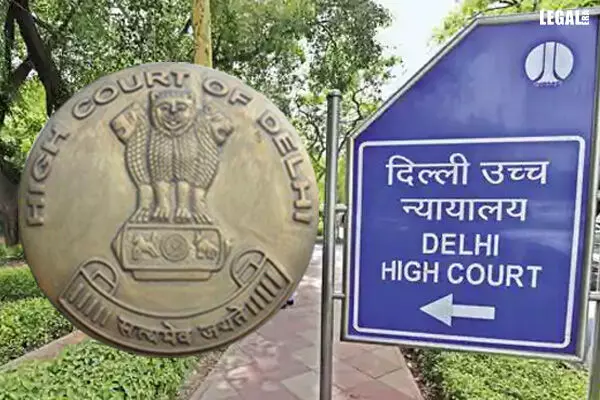- Home
- News
- Articles+
- Aerospace
- Artificial Intelligence
- Agriculture
- Alternate Dispute Resolution
- Arbitration & Mediation
- Banking and Finance
- Bankruptcy
- Book Review
- Bribery & Corruption
- Commercial Litigation
- Competition Law
- Conference Reports
- Consumer Products
- Contract
- Corporate Governance
- Corporate Law
- Covid-19
- Cryptocurrency
- Cybersecurity
- Data Protection
- Defence
- Digital Economy
- E-commerce
- Employment Law
- Energy and Natural Resources
- Entertainment and Sports Law
- Environmental Law
- Environmental, Social, and Governance
- Foreign Direct Investment
- Food and Beverage
- Gaming
- Health Care
- IBC Diaries
- In Focus
- Inclusion & Diversity
- Insurance Law
- Intellectual Property
- International Law
- IP & Tech Era
- Know the Law
- Labour Laws
- Law & Policy and Regulation
- Litigation
- Litigation Funding
- Manufacturing
- Mergers & Acquisitions
- NFTs
- Privacy
- Private Equity
- Project Finance
- Real Estate
- Risk and Compliance
- Student Corner
- Take On Board
- Tax
- Technology Media and Telecom
- Tributes
- Viewpoint
- Zoom In
- Law Firms
- In-House
- Rankings
- E-Magazine
- Legal Era TV
- Events
- Middle East
- Africa
- News
- Articles
- Aerospace
- Artificial Intelligence
- Agriculture
- Alternate Dispute Resolution
- Arbitration & Mediation
- Banking and Finance
- Bankruptcy
- Book Review
- Bribery & Corruption
- Commercial Litigation
- Competition Law
- Conference Reports
- Consumer Products
- Contract
- Corporate Governance
- Corporate Law
- Covid-19
- Cryptocurrency
- Cybersecurity
- Data Protection
- Defence
- Digital Economy
- E-commerce
- Employment Law
- Energy and Natural Resources
- Entertainment and Sports Law
- Environmental Law
- Environmental, Social, and Governance
- Foreign Direct Investment
- Food and Beverage
- Gaming
- Health Care
- IBC Diaries
- In Focus
- Inclusion & Diversity
- Insurance Law
- Intellectual Property
- International Law
- IP & Tech Era
- Know the Law
- Labour Laws
- Law & Policy and Regulation
- Litigation
- Litigation Funding
- Manufacturing
- Mergers & Acquisitions
- NFTs
- Privacy
- Private Equity
- Project Finance
- Real Estate
- Risk and Compliance
- Student Corner
- Take On Board
- Tax
- Technology Media and Telecom
- Tributes
- Viewpoint
- Zoom In
- Law Firms
- In-House
- Rankings
- E-Magazine
- Legal Era TV
- Events
- Middle East
- Africa
Delhi High Court Orders Hetero And Cadila To Disclose Regulatory Documents In Biosimilar Dispute

Delhi High Court Orders Hetero And Cadila To Disclose Regulatory Documents In Biosimilar Dispute
In a significant ruling, the Delhi High Court has directed pharmaceutical companies Hetero Drugs Limited and Cadila Lifesciences Limited to disclose regulatory documents related to their biosimilar drugs. The order comes amid a legal battle initiated by F. Hoffmann-La Roche Ltd. and its affiliates, challenging the approvals granted by the Drugs Controller General of India (DCGI) for biosimilar versions of their cancer treatment drugs, Bevacizumab (Avastin) and Trastuzumab (Herceptin, Herclon, Biceltis).
Roche and its subsidiaries filed two commercial suits (CS(COMM) 540/2016 and CS(COMM) 1119/2016), seeking a permanent injunction against Hetero and Cadila. They alleged that the defendants’ biosimilars were approved without sufficient clinical trials, violating the Drugs and Cosmetics Act, 1940, the Drugs and Cosmetics Rules, 1945, and the Guidelines on Similar Biologics, 2012.
The plaintiffs argued that DCGI granted marketing approvals based on incomplete and inadequate bio-similarity data. They contended that the approvals did not comply with the required regulatory framework and that the defendants failed to conduct independent trials to establish the safety and efficacy of their biosimilars.
Justice Amit Bansal ruled that since biosimilar approvals rely on reference data from innovator drugs, Roche has the right to inspect the data submitted by the defendants to DCGI. The court rejected claims of confidentiality, stating that regulatory approval data must be subject to scrutiny, especially in cases involving life-saving drugs.
Justice Amit Bansal ruled that since biosimilar approvals rely on reference data from innovator drugs, Roche has the right to inspect the data submitted by the defendants to DCGI. The court rejected claims of confidentiality, stating that regulatory approval data must be subject to scrutiny, especially in cases involving life-saving drugs. Emphasizing that the validity of clinical trials and regulatory approvals is central to the case, the court held that Roche is entitled to access key documents, including applications submitted to DCGI for biosimilar approval, pre-clinical and clinical trial data, correspondence between the defendants and regulatory authorities, and approvals and recommendations from expert committees.
To safeguard sensitive business information, the court directed the formation of a confidentiality club, comprising two advocates and one expert from each party. These members will have exclusive access to the disclosed documents and must adhere to strict confidentiality protocols. The companies have been given four weeks to submit the required documents in sealed covers.
This ruling aligns with previous judgments in similar biosimilar disputes involving Roche, Biocon, and Mylan, where courts upheld transparency in the regulatory approval process. The Supreme Court had earlier affirmed a 2016 Delhi High Court judgment, which mandated the disclosure of biosimilar approval documents in a case involving Reliance Life Sciences.
The decision reinforces the principle that regulatory approvals must be transparent, particularly for biosimilars requiring rigorous safety and efficacy testing. Legal experts believe this ruling will enhance regulatory scrutiny and accountability in the Indian pharmaceutical sector.
The case is scheduled for further proceedings on March 24, 2025, before the Joint Registrar of the Delhi High Court.



